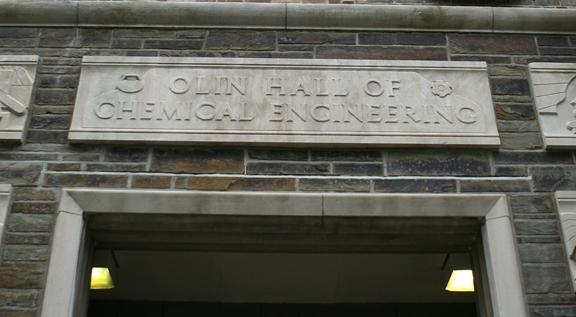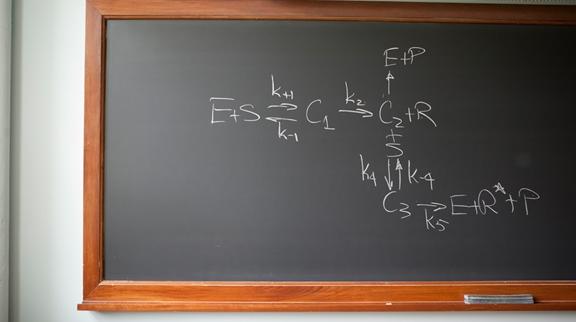Undergraduate Curriculum
Program graduates will leave Cornell with knowledge of fundamentals in chemistry, math, and physics; an understanding of chemical engineering fundamentals and unit operations; mastery of a specialized technical area; the ability to communicate effectively; and much more.
Curriculum for Cornell’s B.S. in chemical engineering program is built around these four components:
- A foundation in math, chemistry, and physics as part of the College of Engineering common curriculum
- Development of chemical engineering analytical tools (fluid mechanics, chemical thermodynamics, and chemical kinetics)
- Analyzing units of chemical processes (chemical reactors, bioreactors, distillation columns, and heat exchangers) with analytical tools
- Designing chemical processes with regard to economics, safety, and environmental impact
Learn more about undergraduate program outcomes as you’re researching career options and deciding if chemical engineering is the best program for you.
You can also browse Cornell’s courses of study for CHEME course descriptions and credit information.





